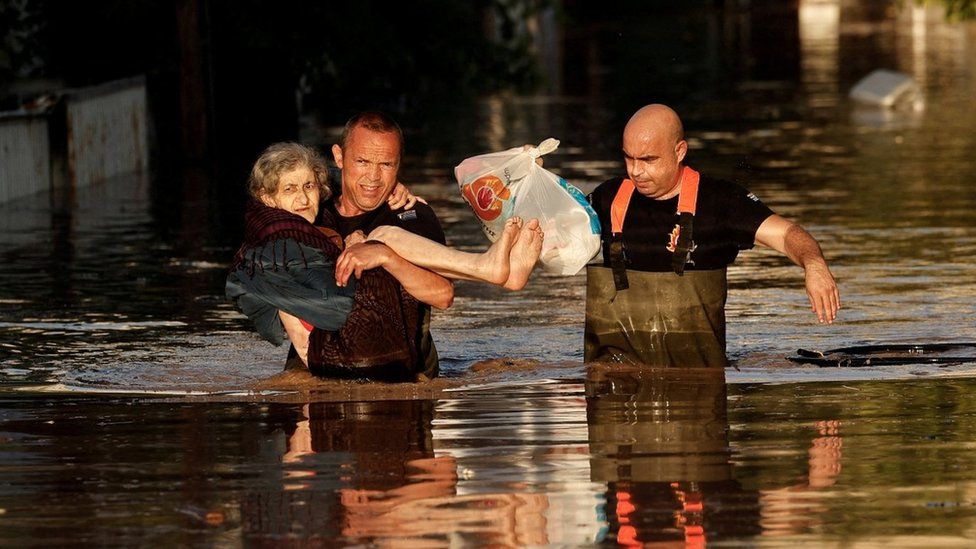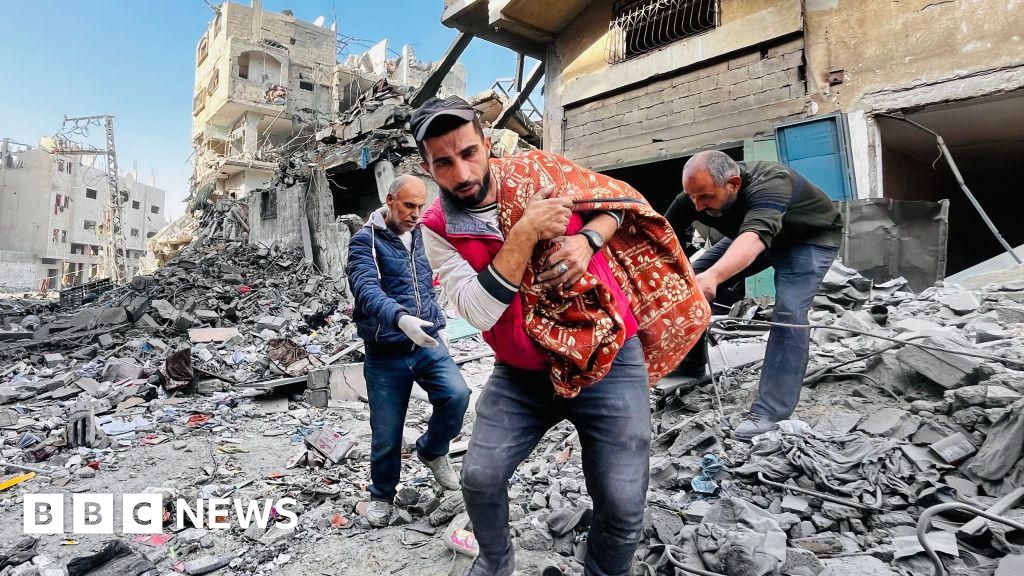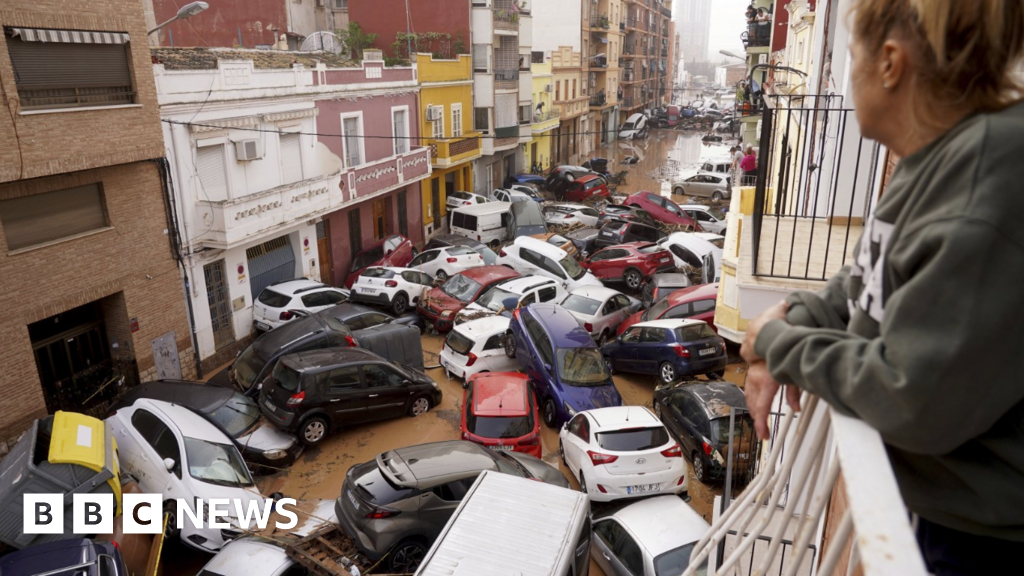ARTICLE AD BOX
 Image source, Reuters
Image source, Reuters
Parts of central Greece saw more than a year's rainfall in one day, and the latest city under threat is Larisa
Rescuers in central Greece are trying to reach hundreds of people trapped by floods that have left villages submerged and seven people dead.
Prime Minister Kyriakos Mitsotakis has said Greeks face "a very unequal battle" with nature.
Rivers have burst their banks and homes and bridges have been swept away after days of torrential rain.
Residents in villages around Palamas and Karditsa have appealed for food and water.
After weeks of scorching temperatures and wildfires, the plains of Thessaly have been deluged by a three-day storm.
Up to 800mm (31.5in) of rain fell in 24 hours - more than a year's worth of rainfall - inundating the flat terrain of Thessaly in central Greece.
There are fears the death toll could rise when rescuers are able to reach more of the flooded areas. The seventh victim of the floods to be found on Friday was a 69-year-old man in Volos.
Visiting some of the worst-affected areas, the Greek prime minister said the country was dealing with "a natural phenomenon the likes of which we have never seen before".
Crops have been devastated and satellite images have shown almost 73,000 sq m of land in Thessaly has been flooded.
Mr Mitsotakis promised to compensate people, whose houses had been destroyed or damaged, as quickly as possible.
"We will do everything humanly possible. I understand both anger and rage. I never hid, I'm always here in difficult times," he said.
The rain has now largely stopped, but the floodwaters in some areas are in places greater than 2m (6.5ft) deep.
The latest city to come under threat is Larissa, home to 150,000 people, where the River Pineios has burst its banks in some suburbs.
Greek authorities have ordered residents in areas surrounding the city to leave.
Image source, EPA
Image caption,Storm Daniel brought more than a year's worth of rain to some areas
The coastal city of Volos has been without clean drinking water for four days. Residents were seen collecting water from fountains and the sea with buckets and barrels, reports said.
The Greek fire brigade said more than 1,800 people had been rescued across Greece since Tuesday.
It said it continued to search for several missing people, including an Austrian couple swept away with the holiday home they were spending their honeymoon in.
The flash flooding has destroyed several bridges, damaged roads and brought widespread destruction to one of Greece's most important agricultural areas.
Thessaly accounts for 15% of its agricultural produce.
Where the water has receded, a thick layer of mud has been left behind on the fertile soil.
The flooding follows Greece's hottest summer on record and massive wildfires in the north of the country.
Scientists say extreme weather events are becoming more frequent and more intense as a result of climate change.

 1 year ago
34
1 year ago
34








 English (US)
English (US)